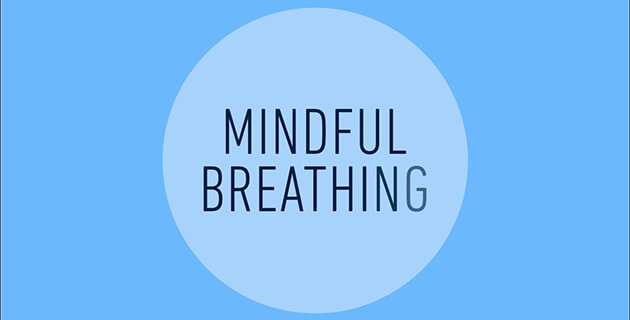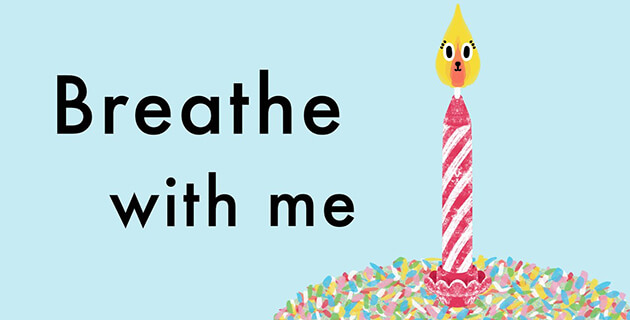It’s easy to identify factors that will likely impact children’s mental health. The difficult part is how to ensure our nursery settings are effective in promoting and supporting positive mental health habits from the get go- and the task of underpinning positive emotional wellbeing habits effectively is a difficult one!
You’re tasked with helping them to develop their language, their interests, social skills, motor skills and let’s not forget toileting! How can you start them off on a mentally healthy journey too?
This article highlights all you need to know on how to make your little ones resilient, self-aware and thoughtful – ready to take on the world beyond your walls.
How do mentally healthy habits affect my early years children?
Post pandemic, 1 in every 6 children have been identified as having a probable mental disorder: top 5 most common being:
- Depression
- General Anxiety Disorder
- Post Traumatic Stress Disorder
- Self-Harm
- Eating Disorder
All studies that give us the percentages and data start at ages 5, so how do we know that this data applies to us in Early Years? As the children we work with are at the forefront of our minds during the day, stay with us once we leave for home and wake us up in the night, you will easily be able to identify children you feel fit these two categories below.
Think of those children who frequently display unhealthy social and emotional behaviours, has a name or two instantly popped into your mind? Will they find life after nursery harder or the same as those with positive habits? These children may be those who are vulnerable to developing life-long habits that damage their mental health and emotional wellbeing.
Trying new experiences and self-developmental skills are most effective when in a place of trust, comfort and safety. The nurturing environment of a nursery is the ideal place to begin these healthy habits, meaning embedded positive strategies when reaching school-age (and fewer shrieks about sharing the sandpit- we hope!)
How are mentally healthy habits formed in the Early Years?
Habits need the three R’s to blossom into go-to strategies:
- Reminder (‘Remember Billy-Bob, we can let others join in our game’)
- Routine (regular opportunities to explore the five mentally healthy habits listed below)
- Reward (verbal praise, use of your behaviour reward system, peer recognition opportunities)
What impacts a toddler's mental health and wellbeing in Early Years?
There are three main risk factors involved which can increase a child’s likelihood to experience mental health challenges in their lifetime:
- Household
- Community
- Environmental
However, the exposure to these experiences, known as Adverse Childhood Experiences- ACEs, does not definitely impact the likelihood of experiencing mental health and wellbeing issues.
What can you do to support mental health and wellbeing in Early Years?
We have collated five of the key aspects to mentally healthy habits, paired with suggested easy and effective activities to give you consistency as a nursery team. These mentally healthy habits aren’t ranked in order of importance, they intertwine perfectly to create a setting where promoting positive wellbeing for all children is at the heart of what you do.
Recognising and naming emotions
What habits are we creating?
A number of schools and now nurseries are using similar charts as this regulation chart from Think Social Publishing, originating from the SEND sector supported by visual images. Recognising the difference in emotions, this is a hard skill even for an adult in crisis to master, let alone a toddler. Building the foundations of naming the emotions through modelled practice is a perfect approach to eventually enable all children to become self-regulators.
How to encourage this everyday?
Using language to recognise the feeling and discuss what their regulation activities could be can start to set the foundations:
- I can see you look sad, colouring can often help cheer you up.
- You look frustrated, why don’t we take a walk outside?
- You look tired, what might help you when you’re feeling sleepy?
Try some of these active calm-down strategies (physical movements help to organise sensory input to the brain and nervous system:
- Cuddle or weighted blanket pressure
- Stroke an animal, or a soft toy
- Squeeze a sensory toy (or flour in a balloon if you’re feeling crafty)
- Count heartbeats
- Dance- JustDance or GoNoodle are excellent, free online options
- Stretch
- Bear, frog or crab walks
Thinking about others and your impact
What habits are we creating?
Empathy and self-awareness are skills that are further strengthened through lifetime experiences, toddlers between 18-24 months are suggested to not only be able to recognise feelings, thoughts and a sense of self but to also recognise others have contrasting feelings too. Building blocks for the mimicking of self-aware behaviours can never start too early. Self-awareness is a crucial reflective skill needed to: maintain relationships, listen to other opinions, recognise difference and diversity, ultimately building self-esteem.
How to encourage this everyday?
- Verbalise empathetic discussions- That thunder was noisy, I can see why you might be scared. We can sit together until you feel safe again.
- Talk about the feelings of others and their impact- Mihal is upset because you took the toy from him, would you like to ask to join in?
- Model self-aware behaviours- Alex looks lonely, let’s ask them to join in with our game.
Here are some books we love for encouraging self-awareness and empathy with infants:
Exercise and physical movement
What habits are we creating?
Which of these adjectives would you use to describe your toddlers in your setting?
I’d be confident bouncy was high on your list? Mine too! Getting toddlers to move isn’t the tricky part of building this habit, it’s just that, getting it to be a habit. Building exercise into routines is crucial, not just for healthy bodies but also healthy minds.
Sleep
using up energy and helping them to be tired enough to get the sleep they need to recharge for round 2!
Mood
exercise releases the feel-good hormone endorphins- even baby endorphins!
Lowers anxiety
when moving in an active manner, this releases cortisol, which allows for stress management.
Social development
the self-esteem available when meeting goals, playing with others and having a great time.
Future hobby
you may have an Olympian in your midst, starting physically healthy habits can spark a long-term interest in sport.
Controlled risk taking
What habits are we creating?
We aren’t talking about toddler cliff jumping, mountain biking or even hoverboards! Controlled risk taking is personal to each child, think again to your setting: who is a ‘nervous nelly’ and who throws themselves into every activity? (Possibly literally). One child’s risk taking may be the attempt at a new texture of food, whilst another might be trying to complete their toilet routine with minimal help. It’s the controlled opportunity to push themselves out of their own comfort zone. To try new things, meet new friends and in turn, learn more about themselves whilst in a safe, nurturing environment.
Have a look at the list below and mentally assign that ‘risk’ to one of your children, you know them best!
- Try new food
- Meet a new person (adult or child)
- Have a new walking partner
- Try a new activity
- Play with a different toy than usual
- Complete a task with more independence
- Learn a new dance
Mindfulness
What habits are we creating?
Now the phrase mindfulness is thrown around a lot at the moment, rightfully so. Hands up, who instantly thought of breathing activities?
Mindfulness is the action of being present and focusing attention (all of it if possible) on one task. So, breathing techniques do fit the bill, focusing on breathing and being present whilst blocking out all other distractions and thoughts. It’s a great habit for us adults to get into also, Youtube is jam packed with lots of 2–5-minute examples to try.


How do we encourage mindfulness in Early Years?
Mindfulness as a habit is multi-layered, it is aiming for ‘flow’; to be so engrossed in an activity, time passes, and positive experiences are had. It might be through:
- Breathing activities
- Dancing
- Colouring
- Creative tasks
- Sport
- Reading
By encouraging your children to build endurance with mindful activities paired with frequency of a daily routine, this will broaden not only their interests and creativity but also allow them to engage in mentally healthy practises of pausing and being present in the moment. Particularly important for the anxious souls among us.
Next Steps
These five key aspects of your culture rely heavily on language and modelling from the whole team consistently across the nursery; discuss at staff and team meetings to take the jump from recognising mental health practises into developing a mentally healthy habit culture.
In your next staff meeting, why not try having the focus on language choices: as a team, encourage consistent sentence and conversation starters, and agree on a method to communicate with your children when they are experiencing emotional dysregulation. Scan over your daily routines, is exercise organised in a structured manner where they are using different skills of pushing, pulling, stretching, balancing, endurance movement and add it to your communications with parents!
Subscribe to receive expert advice and tips from seasoned professionals in the early years sector.